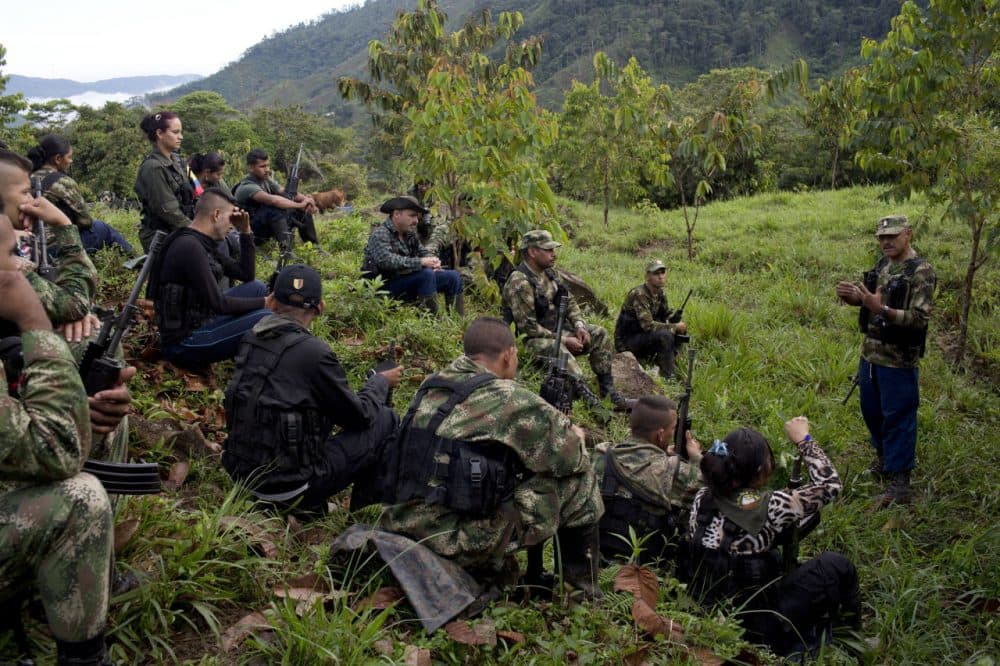Advertisement
What Do Colombian Rebels Do When The War Is Over?
Resume
After 50 years of conflict, Colombian officials say they're close to reaching a peace settlement with the the Revolutionary Armed Forces of Colombia, or FARC.
What does that mean for rebels who have spent most of their adult lives fighting? The New York Times' Nicholas Casey recently spent four days in a FARC camp in the mountains of Colombia.
He tells Here & Now's Meghna Chakrabarti that visiting the camp was like stepping back in time. Many of the rebels have never seen a city or walked on asphalt, and they have a hard time imagining a place for themselves in modern Colombia.
Guest
- Nicholas Casey, Andes Bureau Chief of The New York Times. He tweets @caseysjournal.
This segment aired on March 29, 2016.